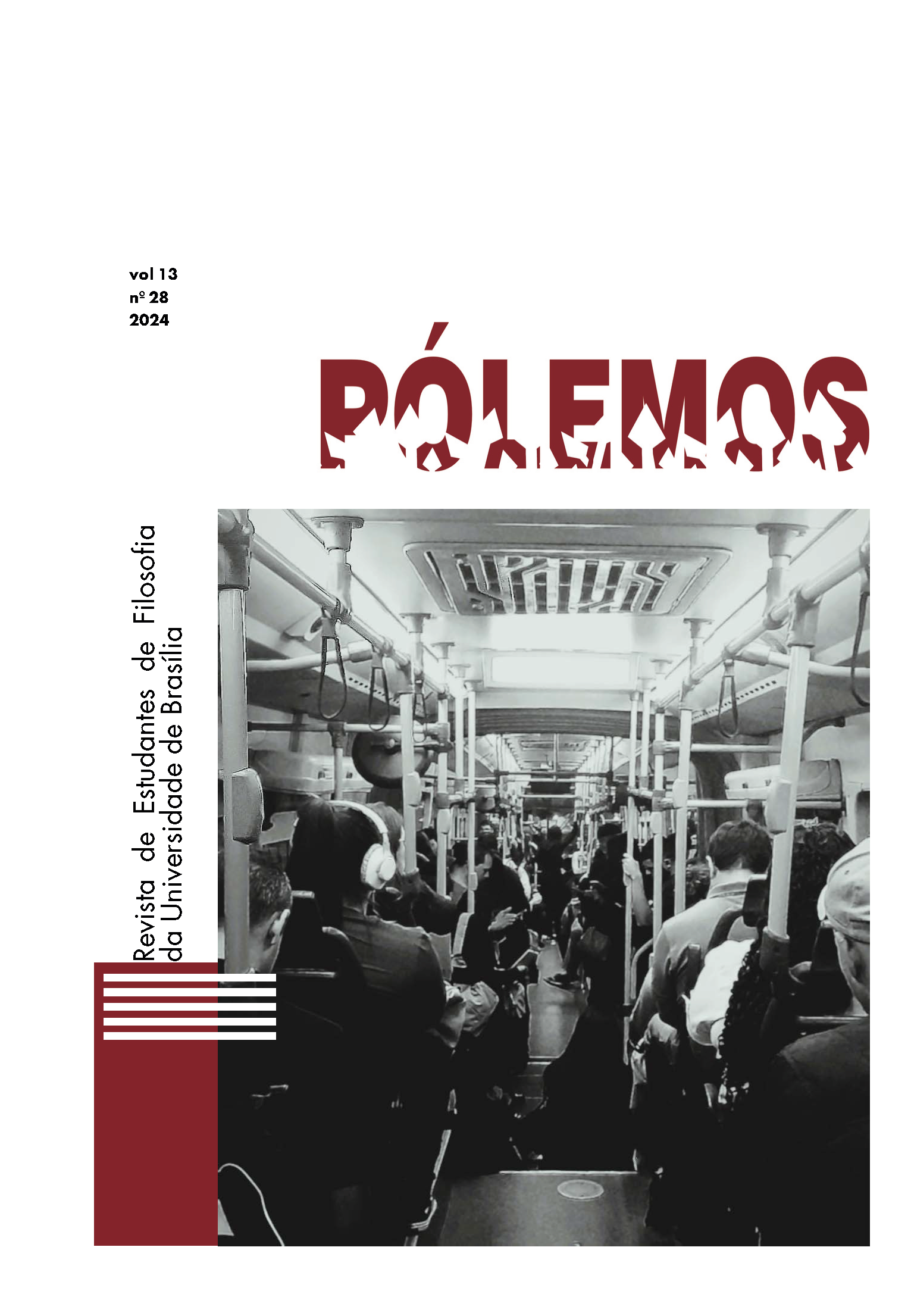TRÊS CARTAS SOBRE OS ANOS DE APRENDIZADO DE WILHELM MEISTER
por Wilhelm von Humboldt
DOI:
https://doi.org/10.26512/pl.v13i28.53700Keywords:
Wilhelm von Humboldt. Wilhelm Meister. Aesthetics. Novel. Bildung.Abstract
Wilhelm von Humboldt was one of Goethe's few interlocutors to criticise the novel Wilhelm Meister’s Apprenticeship (1795-96) before it was published. At the author's request and alongside Schiller, Humboldt made critical comments on the manuscripts during the period of the work's composition and publication, whose remarks not only possibly influenced Goethe's writing, but also show his interpretation of the narrative, a paradigm in the novel's critical tradition. This translation, preceded by an introductory study, brings together the three most significant letters written by Humboldt about the Meister, in which, on the one hand, the critic examines specific themes of the novel and, on the other, seeks to understand its meaning a whole, above all by reflecting on the notion of “years of apprenticeship”.
Downloads
References
ARISTÓTELES. Poética. Tradução, introdução e notas de Paulo Pinheiro. 2a Ed. São Paulo: Editora 34, 2017.
BERGHAHN, Cord-Friedrich (Hrsg.). Wilhelm von Humboldt-Handbuch. Berlin: J.B. Metzler, 2022.
FLITNER, Andreas; GIEL, Klaus. Nachwort der Herausgeber. In: HUMBOLDT, Wilhelm von. Werke in Fünf Bänden. II. Schriften zur Altertumskunde und Ästhetik, Die Vasken. Darmstadt: Wissenschaftliche Buchgesellschaft, 2002, pp. 628-632.
GILLE, Klaus F. „Wilhelm Meister“ im Urteil der Zeitgenossen: ein Beitrag zur Wirkungsgeschichte Goethes. Assen: Van Gorcum, 1971.
GOETHE, Johann W. Os anos de aprendizado de Wilhelm Meister (=WM). Tradução de Nicolino Simone Neto. 2.ed. São Paulo: Editora 34, 2009.
GOETHE, Johann W. Sämtliche Werke nach Epochen seines Schaffens. Münchner Ausgabe (=MA). Band 14: Autobiographischen Schriften der frühen Zwanzigerjahre. Hrsg. von Reiner Wild. München: Hanser, 1986.
HUMBOLDT, Wilhelm von. Gesammelte Schriften. Band 14, Abt. 3,1, Tagebücher I (1788-1798). Ausgabe der Preußischen Akademie der Wissenschaften. Hrsg. von Albert Leitzmann. Berlin: Behr’s Verlag, 1922.
HUMBOLDT, Wilhelm von. Briefe Juli 1791 bis Juni 1795. Band I-2. Hrsg. von Philip Mattson. Berlin, Boston: De Gruyter, 2015.
HUMBOLDT, Wilhelm von. Briefe Juli 1795 bis Juni 1797. Band I-3. Hrsg. von Philip Mattson. Berlin, Boston: De Gruyter, 2017.
HUMBOLDT, Wilhelm von. Sobre Schiller e o percurso de seu desenvolvimento intelectual. Tradução de Damião Esdras Araujo Arraes, Marco Aurélio Werle, Reginaldo Rodrigues Raposo e Robinson dos Santos. In: SANTOS, Robinson dos (Org.). Compêndio Schiller – Schiller e a filosofia: cartas sobre a educação estética. São Paulo: LiberArs, 2021, pp. 11-38.
KÖRNER, Christian. G. Sobre Os anos de aprendizado de Wilhelm Meister. Cadernos de Filosofia Alemã: Crítica e Modernidade, v. 27, n. 2, pp. 115-131, 2022. Tradução de Reginaldo Rodrigues Raposo. DOI: https://doi.org/10.11606/issn.2318-9800.v27i2p115-131.
KOOPMANN, Helmut. Schillers Leben in Briefen. Weimar: Hermann Böhlaus, 2000.
LAUER, Gerhard. Das Humboldtsche Bildungsideal. In: HUMBOLDT, Wilhelm von. Schriften zur Bildung. Stuttgart: Reclam, 2017, pp. 236-271.
MAAS, Wilma Patrícia. O cânone mínimo: o Bildungsroman na história da literatura. São Paulo: Editora UNESP, 2000.
NOVAK, Richey A. Wilhelm von Humboldt as a Literary Critic. Berna: Herbert Lang, 1972.
SCHILLER, Friedrich. Schillers Werke. Nationalausgabe (=NA). 1940 begründet von Julius Petersen. Fortgeführt von Lieselotte Blumenthal, Benno von Wiese, Siegfried Seidel. Hrsg. im Auftrag der Stiftung Weimarer Klassik und des Schiller-Nationalmuseums in Marbach von Norbert Oellers. 40 Bde. Weimar: Hermann Böhlaus, 1943 ff.
STEINER, Uwe. Wilhelm Meisters Lehrjahre. In: WITTE, Bernd; SCHMIDT, Peter (Hrsg.) Goethe–Handbuch. Band 3: Prosaschriften. Stuttgart; Weimar: Metzler, 1997, pp. 113-152.
Downloads
Published
How to Cite
Issue
Section
License
Copyright (c) 2024 PÓLEMOS – Revista de Estudantes de Filosofia da Universidade de Brasília

This work is licensed under a Creative Commons Attribution-NonCommercial-NoDerivatives 4.0 International License.
Todos os trabalhos que forem aceitos para publicação, após o devido processo avaliativo, serão publicados sob uma licença Creative Commons, na modalidade Attribution-NonCommercial-NoDerivatives 4.0 International Public License (CC BY-NC-ND 4.0). Esta licença permite que qualquer pessoa copie e distribua a obra total e derivadas criadas a partir dela, desde que seja dado crédito (atribuição) ao autor / Ã autora / aos autores / às autoras.


